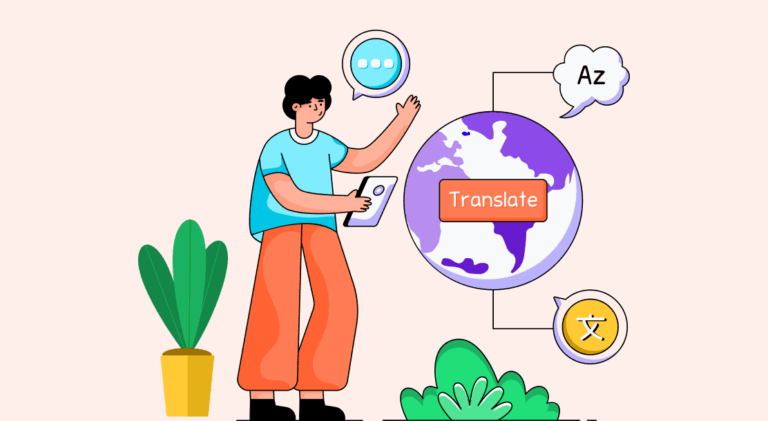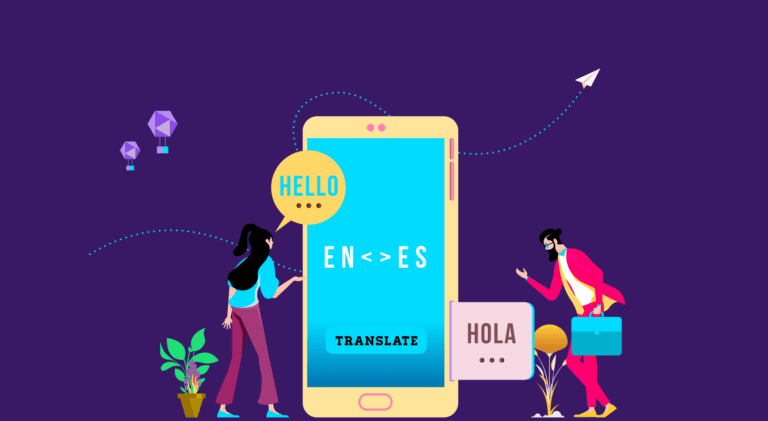Business Translation And Its Impact On eCommerce

Business translation for eCommerce is a process where you translate all the e-store details of your company, such as reviews, product descriptions, blogs, articles, news, and messages from its primary language, into other languages to accompany global business activities. This enables your eCommerce businesses to reach a wider audience, especially in a different geography or having a different linguistic background.
In this blog, we will take a look at the need for eCommerce translation and why it is crucial for web localization.
Why eCommerce Businesses Need Translation
The global eCommerce market has experienced significant growth in the last two years, and more streamlined operations are enabling brands to sell products or services across geopolitical borders from the country of origin. According to eMarketer, the global eCommerce market is expected to reach $6.17 trillion by 2023, and even local markets are experiencing double-digit growth. The report showcases that since 2020:
- Latin American eCommerce sales grew from $68 billion in 2020 to $85 billion in 2021
- Indian eCommerce has experienced a jump in sales from just $46.2 billion in 2020 and is growing rapidly, expected to reach $111.4 billion in 2025
- China accounts for 52.1% of global eCommerce sales and is the leader when it comes to online selling
These trends showcase that a great surge is being experienced in marketers that have non-native English speakers. However, 55.5% of all web content is in English, and only 20% of the world’s population can speak and comprehend the language, with only 5% of the world’s population having English as their native language. Thus, website translation is essential in today’s world for successful web localization and appeal to a local audience.

Website translation helps eCommerce industries to attract traffic to their websites and also provides an easy and clear journey to the customers. Using business translation services, eCommerce brands can translate website content according to local needs and demands, attracting appeal to the native audience in a specific geography.
Here is Why eCommerce Businesses Need Translation
For the diversity of languages and audiences on the internet, there is very little native language content that is available for these specific target groups. By using business translation to translate website content and by providing multilingual support, eCommerce brands can:
- Increase their customer base
It is important to retain customers and attract them to your website by providing them with details of the products in the local language. Translation services play an important role in communicating and providing information and details in the local language to your diverse customer base. According to Common Sense Advisory, 72% of consumers are more likely to buy a product that provides information in their local language, and 56% think that getting information in their native tongue is more important than the product’s price.
- Generate new business opportunities
Translations can help brands penetrate new counties and markets, ultimately providing a new set of business opportunities. eCommerce translation services not only enable you to translate website content into the native tongue but also helps you understand the cultural nuances of the local geography.
For example, the color red is often used in the Western context to signify something negative, while green is the color that signifies positive events. However, red is considered auspicious and is the traditional Chinese color to symbolize happiness, good luck, and positivity. Thus, when translating any content into a specific native tongue, the cultural nuances and context can strongly affect how it will appeal to the audience.
- Go Global
For any business to sustain itself, you must have a stable customer base to whom you sell and incur profits. Businesses need to market themselves globally to have a large set of constant customers. Communicating in different languages will help the business overcome the terrestrial barriers, which will help them expand its eCommerce business.
Growing is necessary for every business to sustain the market and development. Translations are the best way to attract new customers and increase traffic to your eCommerce website.

Benefits of eCommerce Business Translations
Operating an eCommerce business in different countries may require various legal aspects and formalities. Business translations deal with translating not only a website but also all the documentation involved in running your business in a particular region.
While doing so, translating one’s eCommerce website perfectly cannot be ignored and should be on top of your priority chain. Here is why it is super necessary:
- Improves the chances of your product being found online
While developing an eCommerce policy, you need reliable search engine optimization (SEO). Effective SEO and keywords in local languages ensure that your products and services are visible and easily found when native users search for them. Translating your website content into the local language can increase traffic to your website as the customers easily find your products.
- Strengthen your credibility
There are many machine translation apps and tools online that are available free of cost. These tools help you to translate your content quickly and cheaply.
However, hiring website localization professional services is a more reliable idea as they provide fascinating and powerful content that machine translation tools cannot give.
Therefore, hiring professional business translation services that provide appropriate content and language to attract your target audience is always advisable. This even strengthens your credibility, stating that you genuinely think about all the customers throughout the globe.
- Enrich customer experience
The benefit of website translation for an eCommerce business is that it can help you reach your target customer base while easily providing detailed information. Communicating with the customers in their local language will help you improve the ability to convince them to visit and buy the products from your website.
- Increase international competitiveness
Any communication related to business, products, and services should always be accurate, especially when dealing with clients from multiple countries. No matter what the size of your business is, you should take the help of professional language translation solutions.
From whichever part of the world the customers are, professional native language translators provide friendly content that can engage the customers on your site. This can minimize bounce rates, boosting the company’s reputation among international competitors.
Using eCommerce translation services is an advantage for every eCommerce business, as it helps you survive in a diverse local and international market.
It opens up opportunities to cater to a wider audience and provide them with the information they need in their native language, building trust and transparency.
Therefore it is important to get a professional business translation service to work on your content, which will help you to communicate with the customers globally.

FAQs
eCommerce translation is the process of collecting all your e-store data, such as product information, reviews, blogs, and communication messages, in its native language and translating it into different languages to make it accessible for customers globally.
Translations help businesses to spread the information, details, and knowledge of the products to people across the globe. It allows businesses to communicate their details to people from different cultures and areas of the world.
The four types of translation are Professional translation, Technical translation, Literary translation, and Administrative translation.
Latest Blogs
Explore how Google’s 2025 AI search updates triggered ranking chaos. Learn actionable strategies to adapt your SEO for AI Overviews, zero-click searches, and SERP volatility. Stay ahead now.
Learn how to rank on AI search engines like ChatGPT, Perplexity, and Gemini by optimizing your content for authority, structure, and relevance. Stay ahead in AI-driven search with this strategic guide.
Explore the best healthcare SEO services for your medical practice. Improve online visibility and effectively reach more patients in need of your services.
Get your hands on the latest news!
Similar Posts

Translation
5 mins read
All You Need to Know About Language Translation and Terminology Management

Translation
5 mins read
6 Reasons to Translate Content into German

Translation
5 mins read